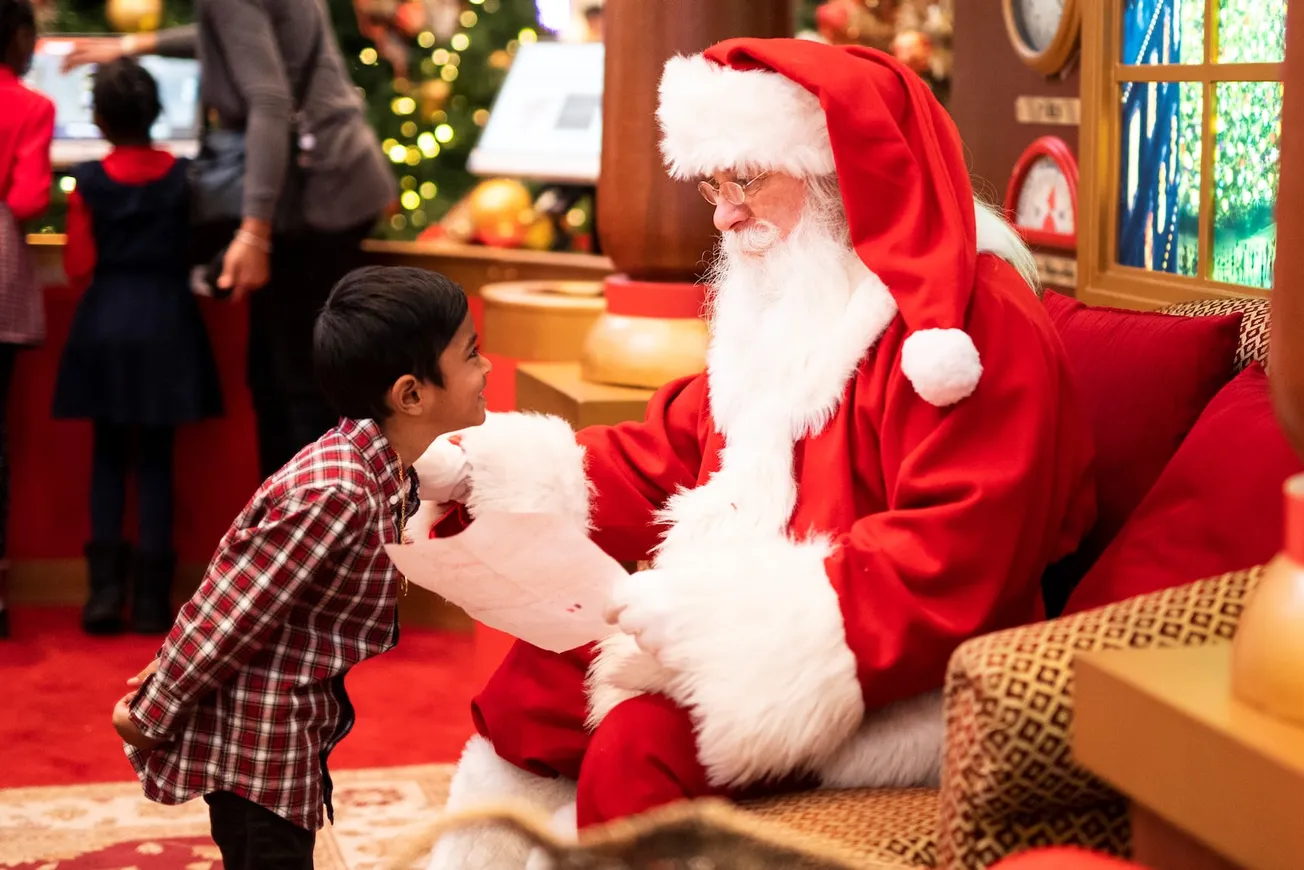Table of Contents
Kelly Allen MAPS FCEDP
psychlopaedia.org
Dr Kelly Allen MAPS FCEDP is an award-winning educational and developmental psychologist, academic and researcher with experience in early childhood, early intervention, primary school, and secondary school settings.
How children and their families benefit psychologically from seasonal traditions
Each year at Christmas a theme emerges in the media and online and in conversations among parents: should we tell our children about Santa?
There are many reasons why Christmas may make adults uncomfortable, especially if they are keen to ensure children receive healthy messages. Parents may begrudge the overt commercialisation of the event or the intense pressure to buy. They may resent the choked-up roads and heaving shopping centres or feel the pang of dearly missed loved ones. Perhaps they also feel it is not right to manipulate young children with fantastical beliefs about Santa Claus and his watchful elves.
As an educational and developmental psychologist, I am yet to work with a young person that has been negatively impacted by Santa mythology and I am certainly not aware of any scientific evidence to suggest it is harmful. I believe the Santa tradition is not only good for children but may actually benefit society more widely.
- Santa may help build stronger communities
Communities are changing. Alterations in the way we live, work and socialise mean that for many families regular opportunities to gather are on the decline. Fewer multigenerational families live under one roof and many of us are lonelier than ever before. So how do traditions like Christmas and the Santa myth help? For one, Christmas can increase our sense of social belonging, which psychologists know to be so important to mental health. Not only does Christmas provide opportunities for shared social experiences but there are also long-term benefits such as increased social contact and the formation and maintenance of social support networks. - Santa may boost memory
Many adults engage in the Santa ritual for reasons of tradition and nostalgia. Research shows us that marking special occasions and reminiscing about them afterwards can help improve our memory. When we engage in rituals or celebrate important events, we make those days stand out from life’s blur. Celebrating a specific occasion or engaging in a family tradition is like creating an index card in your life – a reference to a specific point in time for future reflection and remembrance. - Traditions and rituals boost wellbeing
Family practices centred on tradition, such as the celebration of Christmas, contribute to a rich and meaningful life. Such practices can have a positive impact on our perceived happiness and mood as well as our overall life satisfaction. People who engage in fewer rituals report that they feel lonelier. Thus, encouraging rituals and traditions that unite the generations is important for creating more connected and cohesive societies. For young people in particular, research shows that family rituals are important for increasing family cohesion, which directly impacts on wellbeing. - The magic of Christmas fosters imagination and creativity
The Santa Claus tradition provides an opportunity for children to engage their imaginations, boosting the social and emotional skills that underpin resilience. Engaging in fantasy and pretend play is important for executive functions like attention skills. This is good evidence encouraging parents to stimulate their children’s imagination. Even the simple act of writing a letter to Santa is an opportunity for young children to articulate their hopes and dreams – and practice their writing. - We can all be a little kinder
If celebrating Christmas and engaging in the Santa myth does not appeal for the reasons outlined above, think about the opportunity to model kindness. We might not agree on whether traditions around Santa are important, but we can all agree that the world could use a little more kindness.
Children will come to their own conclusions about Santa when they are ready and parents can help support and nurture age-appropriate understandings as they arise. Numerous advantages to engaging in rituals and traditions that celebrate Santa far outweigh any negatives.







